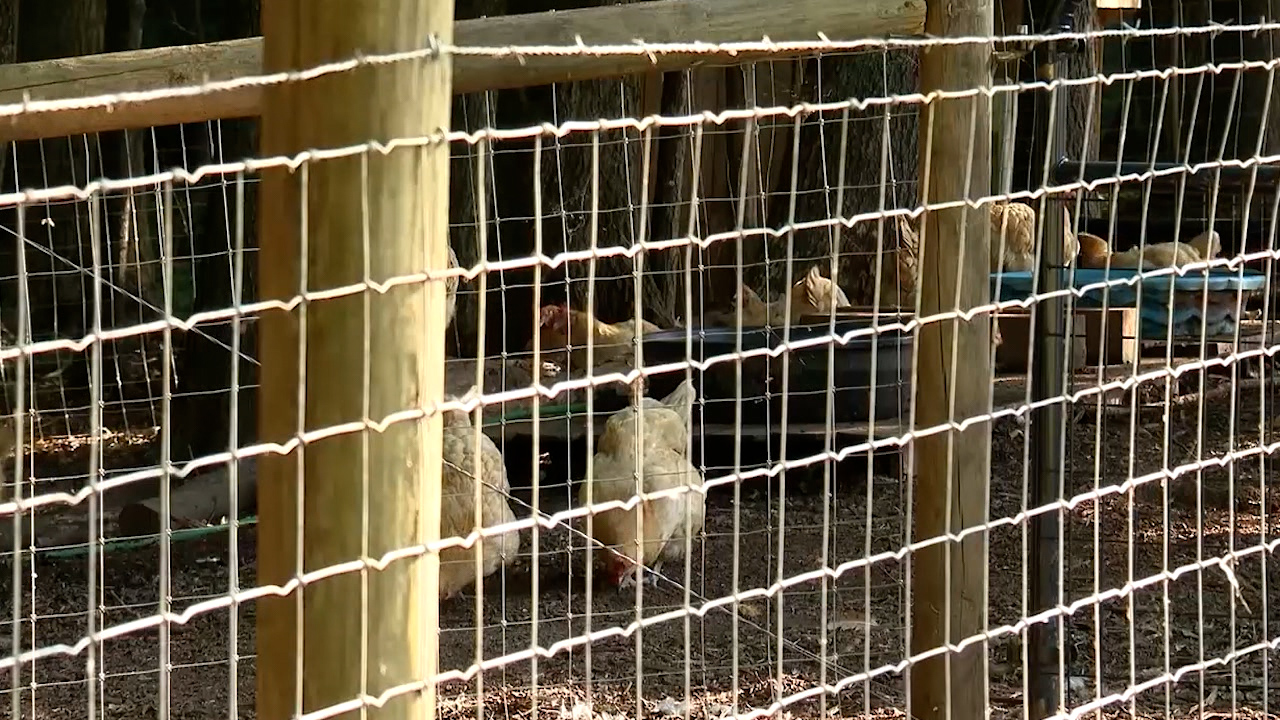Health
Health Canada won’t say how much pain medicine for kids is coming or where it’s going

|
|
OTTAWA — Health Canada officials say more doses of children’s painkillers and fever medication will be available soon, but they won’t say how many or where exactly they’ll be sent.
Deputy Minister Stephen Lucas and several other senior Health Canada officials with responsibility for pharmaceutical policy were summoned to the House of Commons health committee Tuesday to explain why Canadian hospitals and nervous parents with sick kids at home are finding empty shelves where children’s Tylenol and Advil are supposed to be.
The shortage began last spring but was exacerbated in the summer, when an early appearance of influenza and respiratory syncytial virus coincided with the ongoing COVID-19 pandemic. Parents, worried the medicines wouldn’t be available when their kids needed them, flocked to stores to stock up. Demand quadrupled.
Chief Medical Adviser Dr. Supriya Sharma said manufacturers initially told the government in the spring they could address a “tightening” in supply by increasing production. But by August, they let Health Canada know that plan was failing.
After nearly two months of discussions between governments and manufacturers, Health Canada arranged to import doses from the United States and Australia. The first U.S. shipment is already on the ground.
But frustration overflowed when NDP MP Don Davies asked at the committee meeting how many additional doses are coming in and where they are going.
Linsey Hollett, the director of health product compliance for Health Canada, said that’s confidential.
“Unfortunately, I’m not able to share the exact quantities,” she said.
She said distribution is being prioritized for hospitals but wouldn’t say which ones, only that information provided by children’s hospitals is being used to determine the need.
Hollett later clarified that Health Canada was trying to convince the manufacturers to make the information public and hoped that would happen soon.
Davies was incensed and Conservative MP Stephen Ellis called the secrecy “unconscionable.”
To little avail, MPs and officials meandered for an hour around questions about when the shortage began, who is to blame and why it happened.
Lucas repeatedly told MPs that drug shortages are not unusual, are often dealt with before anyone in the public realizes there is a problem and are not unique to Canada.
Bloc Québécois MP Jean-Denis Garon asked him to name even one other country where politicians have had to demand health officials explain to a committee why kids can’t get medicine to bring down their fever.
Lucas said it’s true that this particular shortage is worse in Canada, but he said there are acetaminophen shortages elsewhere, including in France, Germany and Ireland.
At the end of October, France limited the purchase of acetaminophen — known in France more commonly as paracetamol — to two boxes per customer due to a shortage. Both Ireland and Germany are warning there are hundreds of drugs in short supply, including kids’ fever medications.
The German pharmacists association said in mid-September that China’s ongoing COVID-19 lockdowns were affecting port exports, and that the heavy reliance on China and other Asian countries to make the active ingredients in drugs such as acetaminophen and ibuprofen meant that global supply-chain issues were having an impact.
Lucas acknowledged that supply-chain woes are contributing to drug shortages.
Hollett said there are currently shortages of as many as 800 drugs in Canada, but she said most are not critical.
There are 23 drugs on the government’s “tier 3″ list of critical shortages that pose significant risk to patients and the health care system. The designation requires the government to assemble a committee to investigate the problem and potential solutions.
Neither acetaminophen nor ibuprofen are on the list, which is published on the government’s website.Health Canada could not explain on Tuesday why they are not there.
This report by The Canadian Press was first published Nov. 15, 2022.
Mia Rabson, The Canadian Press
Health
See how chicken farmers are trying to stop the spread of bird flu – Fox 46 Charlotte


CLOVER, S.C. (QUEEN CITY NEWS) — Poultry farmers across the Carolinas aren’t taking any chances. Many are turning to strict protocols as another wave of bird flu continues to threaten the chicken population across the country.
Since 2022, it is estimated more than 90 million birds have either died from the virus or were killed to prevent further spread in the U.S.
“We try to make them the happiest as possible. We always say a happy chicken is a tasty chicken,” owner of Eden Farms Adam Shumate said.
With their happiness in mid, Shumate also wants to keep his chickens alive and healthy. On his farm in Clover, he has implemented protocols to minimize a potential bird flu outbreak.
“We want to be prepared,” he said. “We feel like the things that we can do to prevent it first is the best case because we don’t want to start from scratch with a whole new flock.”
Because bird flu is commonly spread through bird droppings, Shumate is limiting the number of people coming into contact with his flocks. He says this would minimize the chances of someone walking onto the property with bird droppings on the bottoms of their shoes.
On top of monitoring the chickens closely, Shumate and his staff are constantly cleaning their equipment, including what they wear on their feet.
“We have specific shoes that are just for working with the flock and for when we are taking care of them,” Shumate said.
Other farmers, like Holly Burrell, haven’t let a visitor step foot near her hens in Gastonia for more than two years.
No visitors or outside cars are welcomed, and her chickens are separated in what she calls “tent cities.”
“We don’t want to do that because we want them to live their best life,” Burrell said in a 2022 interview with Queen City News.
Recently, health officials have detected bird flu in other animals like seals, squirrels and dolphins.
Earlier this month, bird flu was detected in one of the state’s dairy cow herds. While concerning, state health officials say the overall risk to the general public remains low.
“I’ve not heard of any cases, zero cases of people being affected by this virus associated with food consumption, milk consumption with egg consumption… any of these products we’re getting from farm animals is not really been associated with any human risk at this point,” said Dr. Michael Martin, director of the Veterinary Division at the N.C. Department of Agriculture and Consumer Services.
As of March 28, at least 80 birds in North Carolina were detected with the virus. Back in York County, Shumate says it all starts with the individual farms.
“When it comes to wildlife and things that that, there is only so much that you can do is be observant,” Shumate said. “Keep a healthy flock that way they can find off the infections that may come about.”
Health
CFIA Monitoring for Avian Influenza in Canadian Dairy Cattle After US Discoveries – Morning Ag Clips –


From the field to your inbox, the Weekend Edition of the Morning Ag Clips features stories, trends, and unique perspectives from the farming community. This laid-back edition is great for anyone looking for a fun weekend read.
Morning Ag Clips. All ag. All the time.
Health
HKPR health unit to issue 2,000 student suspensions for incomplete immunizations – Global News
A central Ontario public health unit is issuing approximately 2,000 suspension orders for students who do not meet provincial vaccination requirements.
On Monday, the Haliburton, Kawartha, Pine Ridge District Health Unit stated second notices are being issued to parents and guardians to remind them to get their child’s immunization records updated.
Serving Northumberland County, Haliburton County and City of Kawartha Lakes, the health unit estimates approximately 2,000 suspension orders will be issued this week for students in junior kindergarten to Grade 2 and Grades 4 to 8. In January, the health unit estimated there were 1,000 students with incomplete immunization records.
Failure to have updated immunization records or provide a valid exemption will result in suspension from school beginning May 13, and could last for up to 20 days or until health unit records are updated to meet the Immunization of School Pupils At (ISPA).
The ISPA requires all Ontario students to be vaccinated against tetanus, diphtheria, pertussis, polio, measles, mumps, rubella, meningococcal disease and varicella or have a valid exemption on file with the health unit.
“Our goal is to ensure all student vaccination records are kept up to date according to the Immunization of School Pupils Act,” said Marianne Rock, the health unit’s manager of communicable disease prevention and control.
“If you’ve received notification and your child has had all of their recent vaccinations or has a valid exemption, this means that you need to contact us to ensure our records are updated as we don’t necessarily receive these updates from your health care providers.”
The health unit advises to check your child’s immunization record by contacting the health unit or visiting the Immunization Connect Ontario (ICON) website. Parents are responsible to provide proof of immunization or a valid exemption by the ICON website or call the health unit at 1-866-888-4577 ext. 1507, fax 905-885-5352 or email immunization@hkpr.on.ca
The health unit says to contact a healthcare provide to book an immunization appointment. If you do not have a health care provider, contact the health unit to book an appointment online or cal 1-866-888-4577 ext. 1507.
© 2024 Global News, a division of Corus Entertainment Inc.
-



 Science24 hours ago
Science24 hours agoNanaimo astronomers will hear science and legends behind aurorae
-
Media23 hours ago
This Perth County farmer racked up 1 million social media followers doing chores
-
Investment7 hours ago
Down 80%, Is Carnival Stock a Once-in-a-Generation Investment Opportunity?
-
News21 hours ago
Canada contacts Israel after aid agency says water truck bombed in ‘targeted’ attack
-
Investment22 hours ago
UK Launches Saudi Investment Drive to Grab Share of MBS’s Vision
-



 Politics23 hours ago
Politics23 hours agoThis week, Trump had to hear what potential jurors really thought of him
-
Media22 hours ago
Reckless use of social media threatens wild species and landscapes
-



 Science18 hours ago
Science18 hours agoWhite House directs NASA to create moon time – The Tartan












